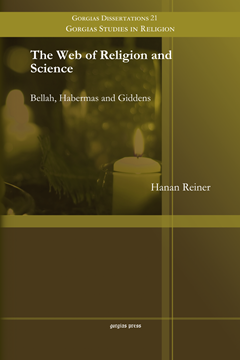Hanan Reiner
The Web of Religion and Science
Bellah, Habermas and Giddens
By Hanan Reiner
Series: Gorgias Studies in Religion 21
ISBN: 978-1-4632-0398-6
Scholars from various fields of study have long dealt with the relationship between religion and science. This subject has found a particular expression in sociology. Sociologists and other scholars agree that even though religion and science can be seen as separate from each other, there are several commonalities between the two. The common ground between Bellah, Giddens, and Habermas – the meaningful position the Subject has/should have in constructing the social reality – brings to light a transition in the sociological theoretical arena, if we take into account the different theoretical roots of each scholar – Functionalism (Bellah), Positivism (Giddens), and Neo-Kantian (Habermas).
$55.00 (USD)
Bellah, Habermas and Giddens
By Hanan Reiner
Series: Gorgias Studies in Religion 21
ISBN: 1-59333-225-4
Scholars from various fields of study have long dealt with the relationship between religion and science. This subject has found a particular expression in sociology. Sociologists and other scholars agree that even though religion and science can be seen as separate from each other, there are several commonalities between the two. The common ground between Bellah, Giddens, and Habermas – the meaningful position the Subject has/should have in constructing the social reality – brings to light a transition in the sociological theoretical arena, if we take into account the different theoretical roots of each scholar – Functionalism (Bellah), Positivism (Giddens), and Neo-Kantian (Habermas).
$111.00 (USD) $66.60 (USD)


